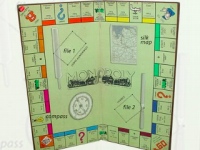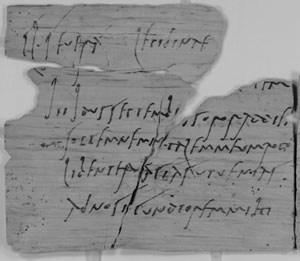World War II Monopoly Maps: Prisoner's Best Friend
As various people come forward with
dispensation to reveal what once were state secrets, we're learning all sorts of things about World War II. For instance, hundreds of allied prisoners of war in German concentration camps were helped to escape via smuggled maps and tools that were cleverly hidden inside the boards and playing pieces of Monopoly and other board games. British airmen were briefed before missions with data about the countryside, and were told that should they be captured, it was their duty to attempt escape. They were told to watch for "special" Monopoly sets and other board games that would contain escape kits, and specially printed silk maps, hidden in special compartments beneath the board surface. The Monopoly games were marked by a red dot in the Free Parking square.

